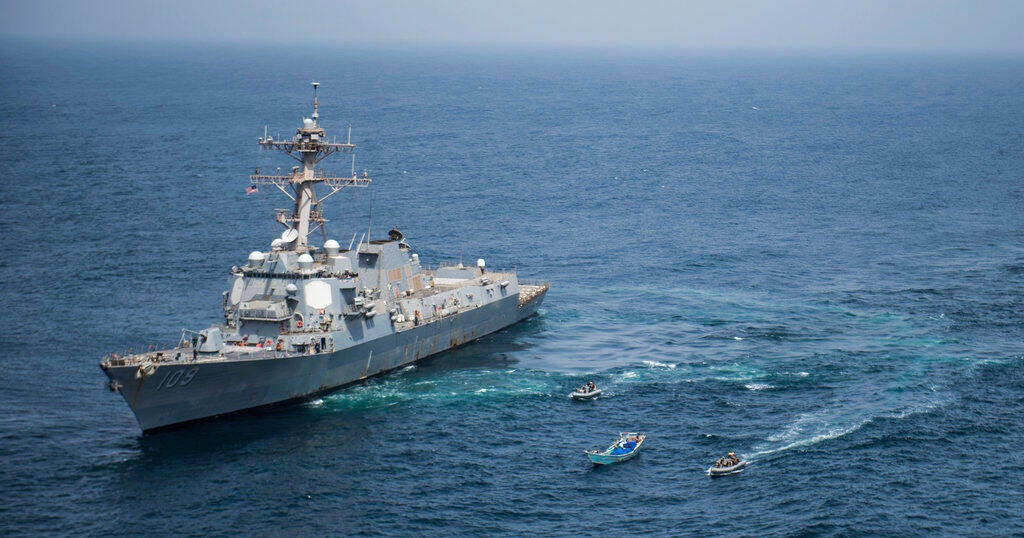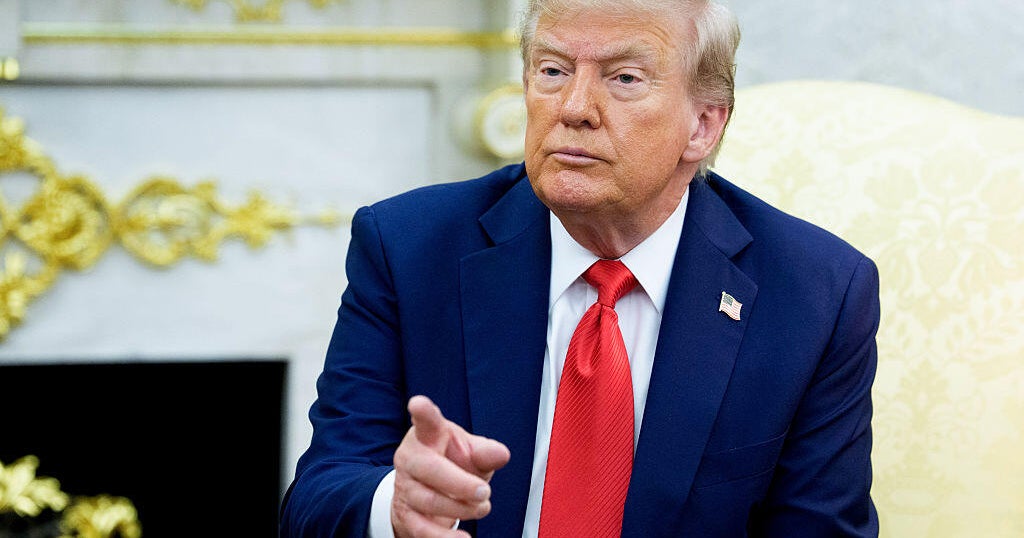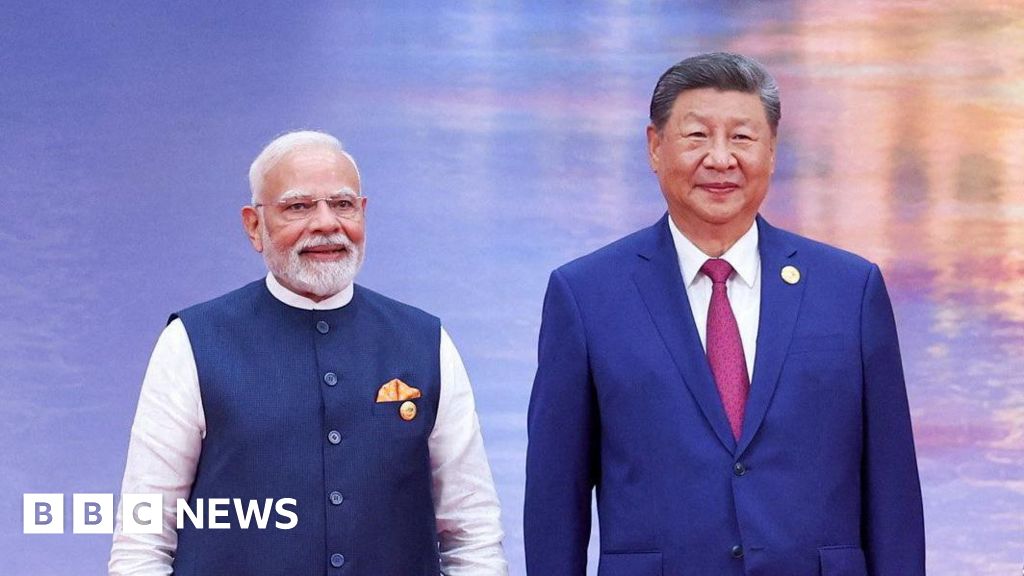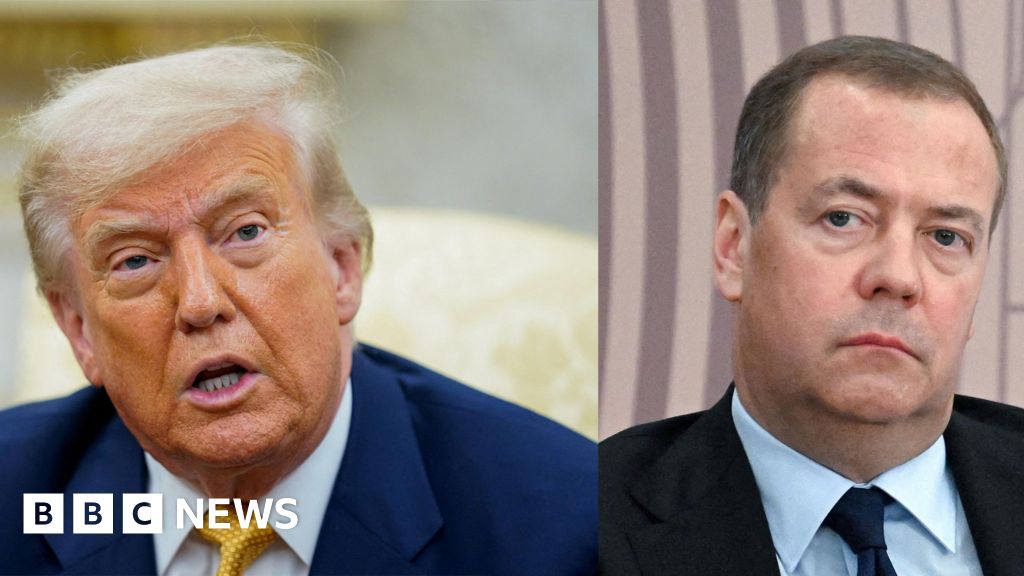Tensions Rise Between US and Venezuela
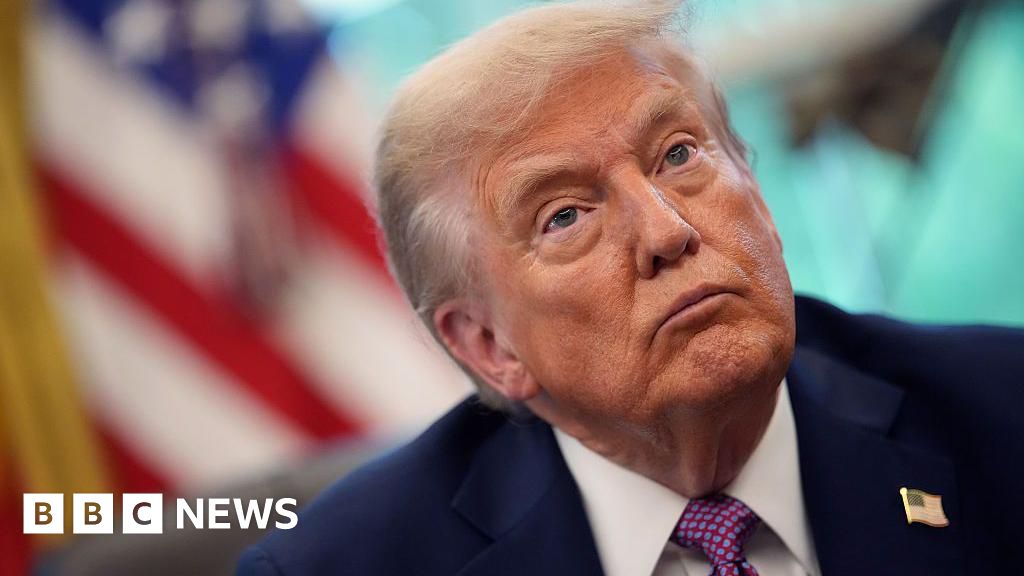
Introduction
In a recent statement, Venezuelan President Nicolás Maduro said that any "differences" between his country and the US do not warrant a military conflict. This comes after US President Donald Trump warned that Venezuelan jets will be "shot down" if they pose a threat to US ships. The ongoing tensions between the two countries have raised concerns about the potential for a military confrontation.
Key Details
The US and Venezuela have been at odds for years, with the US imposing sanctions on Venezuela and recognizing opposition leader Juan Guaidó as the country's legitimate president. Maduro, on the other hand, has accused the US of attempting to interfere in Venezuelan affairs and has rejected any international involvement in the country's internal conflicts. The recent exchange of threats between Trump and Maduro has only escalated the tensions between the two nations.
Impact
The potential for a military conflict between the US and Venezuela could have serious consequences for both countries and the region as a whole. A clash between the two nations could lead to a humanitarian crisis and destabilize the already fragile political and economic situation in Venezuela. It could also have wider implications for the region, as neighboring countries could be drawn into the conflict and result in a larger-scale conflict.
About the People Mentioned
Nicolás Maduro
Nicolás Maduro Moros, born on November 23, 1962, in Caracas, Venezuela, is a Venezuelan politician who has served as the president of Venezuela since April 2013. He rose to power following the death of long-time president Hugo Chávez, initially becoming interim president and then winning a special election later that year. Before his presidency, Maduro was a bus driver and union leader, gaining experience as a labor organizer, and later held key political roles including speaker of the National Assembly and minister of foreign affairs under Chávez[1][2]. Maduro is a prominent figure of *chavismo*, the political ideology established by Chávez, and has been the leader of the United Socialist Party of Venezuela (PSUV). His administration has been marked by severe economic challenges, including hyperinflation, shortages of basic goods, and a collapse in public services, which have contributed to widespread social unrest and protests. Critics accuse his government of authoritarianism, human rights abuses, and corruption, while Maduro and his supporters attribute Venezuela's crises largely to international sanctions and external interference[1][2][3]. Internationally, Maduro's legitimacy has been contested, with numerous countries and organizations refusing to recognize his presidency following disputed elections in 2018 and 2024. His government is known for tight control over the economy and media, with reports of repression against opposition parties and independent press. In recent years, allegations of corruption involving Maduro's family and close associates have surfaced, including high-profile criminal convictions related to drug trafficking schemes linked to his inner circle[3]. Despite ongoing political isolation and economic hardship, Nicolás Maduro remains in power as of late 2025, maintaining his position through the support of Venezuela’s military and loyalist institutions, continuing to assert his leadership amid persistent domestic and international challenges[1][2][3][4].
Donald Trump
Donald John Trump, born June 14, 1946, in Queens, New York, is an American businessman, media personality, and politician. He graduated from the University of Pennsylvania’s Wharton School in 1968 with a degree in economics. In 1971, he took over his family’s real estate business, renaming it the Trump Organization, through which he expanded into building and managing skyscrapers, hotels, casinos, and golf courses. Trump gained widespread fame as the host of the reality TV show *The Apprentice* from 2004 to 2015, which helped establish his public persona as a successful entrepreneur. Trump entered politics as a Republican and was elected the 45th president of the United States, serving from 2017 to 2021. His presidency was marked by significant policy actions including tax cuts, deregulation, the appointment of three Supreme Court justices, renegotiation of trade agreements (notably replacing NAFTA with the USMCA), and a focus on immigration control including border wall expansion. He withdrew the U.S. from international agreements such as the Paris Climate Accord and the Iran nuclear deal, and engaged in a trade war with China. His administration’s response to the COVID-19 pandemic was criticized for downplaying the virus’s severity. Trump was impeached twice by the House of Representatives—first in 2019 for abuse of power and obstruction, and again in 2021 for incitement of insurrection—but was acquitted by the Senate both times. After losing the 2020 election to Joe Biden, Trump challenged the results, culminating in the January 6, 2021, Capitol riot. He remains a central figure in American politics, having won the 2024 presidential election and returned as the 47th president in 2025, continuing to promote policies aimed at economic growth, border security, and military strength[1][2][3][4].
About the Organizations Mentioned
US
The query seems to be about providing a summary of the organization "US," which could be interpreted as the United States government or a specific entity within it. However, without a clear reference to an "organization" named "US," I will provide a comprehensive overview of the United States government, focusing on its structure, history, achievements, current status, and notable aspects relevant to business and technology. ## Overview of the United States Government The United States government is a federal republic with a system divided into three branches: the legislative, executive, and judicial. This structure is designed to provide checks and balances on each branch. ## History The U.S. government was established in 1789 under the Constitution, which outlines the framework of the federal system. Over time, the government has evolved through numerous amendments and reforms, shaping policies and laws that impact various sectors, including business and technology. ## Key Achievements - **Economic Growth**: The U.S. has been a global leader in economic growth, innovation, and technological advancements, fostering a strong business environment. - **Technological Advancements**: The government has supported significant technological developments, such as the internet and space exploration, through funding and regulatory frameworks. - **Regulatory Frameworks**: Agencies like the Federal Trade Commission (FTC) and the Federal Communications Commission (FCC) play crucial roles in regulating industries and ensuring consumer protection. ## Current Status Currently, the U.S. government is engaged in various initiatives to address contemporary challenges such as climate change, cybersecurity, and healthcare reform. The government also continues to evolve its organizational structure, with ongoing discussions about the role of the executive branch, as seen in initiatives like Project 2025. ## Notable Aspects - **Project 2025**: This initiative, backed by the Heritage Foundation, aims to restructure the federal government to align with conservative ideals, potentially impacting civil rights and executive branch powers. - **Standards and Regulations**: The U.S. Standards Strategy,
Venezuela
Venezuela, officially the Bolivarian Republic of Venezuela, is not an organization but a sovereign country located on the northern coast of South America, with its capital in Caracas[1][2]. It covers an area of 916,445 km² and has an estimated population of about 34.5 million as of 2025[1][2]. Bordered by the Caribbean Sea to the north, Colombia to the west, Brazil to the south, and Guyana to the east, Venezuela also administers several Caribbean islands and archipelagos[1][2]. ## History Venezuela was colonized by Spain in 1522, but became one of the first Spanish-American territories to declare independence in 1811, later forming part of Gran Colombia before emerging as a fully sovereign nation in 1830[1]. The 19th and early 20th centuries were marked by political instability and autocratic rule, but from 1958 until the late 1990s, Venezuela was notable for its stable democracy and economic prosperity, especially as a major oil exporter[1]. ## Economy and Achievements Venezuela’s economy has historically been driven by its vast oil reserves—among the largest in the world—which fueled rapid modernization and urbanization in the 20th century[1][2]. The country’s oil wealth once made it one of the wealthiest nations in Latin America, funding infrastructure, education, and social programs[1]. However, over-reliance on oil, mismanagement, corruption, and political turmoil have led to economic collapse, hyperinflation, and widespread poverty in recent decades[2][4]. ## Current Status As of 2025, Venezuela faces a severe humanitarian crisis, with over 20 million people living in multidimensional poverty and nearly 8 million Venezuelans having fled the country since 2014 due to economic hardship and political repression[4][7]. The government, led by President Nicolás Maduro
Juan Guaidó
Juan Guaidó is not an organization but a Venezuelan politician who has played a pivotal role in the country's political landscape. Here is a summary of his role and achievements: ## Background and Early Career Juan Guaidó was born on July 28, 1983, in La Guaira, Venezuela. He rose to prominence as a leader in the student movement, particularly with the "Generation 2007" group. Guaidó was instrumental in establishing *Voluntad Popular* (Popular Will), a progressive opposition party founded by Leopoldo López in 2009. He became a key figure in the *Mesa de la Unidad Democrática* (Democratic Unity Roundtable), an opposition coalition formed to counter the authoritarian tendencies of Hugo Chávez's government[2]. ## Leadership and Key Achievements In 2015, Guaidó was elected as a congressman for the state of Vargas, contributing to the opposition's supermajority in the National Assembly. In December 2018, he was elected as the president of the National Assembly, despite his party holding only a small fraction of the seats. This marked a significant moment as he unified the opposition and challenged Nicolás Maduro's legitimacy following the disputed 2018 presidential election[1][2]. ## Current Status Guaidó's leadership has been recognized internationally, with many countries supporting his claim as Venezuela's interim president. However, his influence within Venezuela has waned somewhat due to the ongoing political stalemate and the government's reluctance to yield power. Despite this, he remains a prominent figure in Venezuelan politics, advocating for democratic reforms and human rights[1]. ## Notable Aspects Guaidó's rise to prominence was marked by his resilience in the face of adversity, including physical confrontations with authorities. His leadership has been pivotal in galvanizing international support for Venezuela's opposition, though the country's political future remains uncertain[1][2]. While Juan Guaidó
